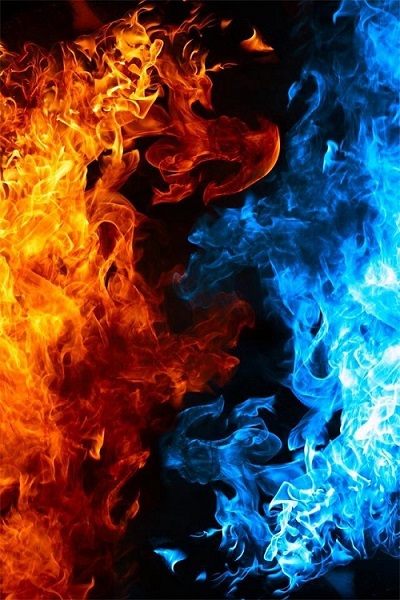FWP:
SETS == EXCLAMATION; IDIOMS; WORDPLAY
It's a striking first line-- piquant and almost riddle-like. Although we have no idea where it's going, when we're allowed (after the requisite mushairah-performance delay) to hear the second line, we can see the angular, unexpected relevance.
The second line pivots entirely on the wordplay-- which of course, as Faruqi would remind us, is also meaning-play-- of afsurdagii and jalnaa . Both have the dual aspect of a basic physical meaning (coldness vs. fire) and various metaphorical meanings generated by extension (see the definitions above). If the heart feels 'coldness, numbness, melancholy', the reaction of the inner self, the temperament, is to 'burn up'. But in what sense? Does it feel 'pity', 'sorrow', 'love', 'jealousy', 'envy', 'indignation', or 'rage'? Or some combination of these emotions? Or even all of them together? No matter which emotion(s) we choose, meaningful connections with 'coldness, numbness, melancholy' can easily and unforcedly be made.
In commenting on M{386,2}, Faruqi has called the present verse 'worthy to be counted among the best not only of Ghalib's verses, but of verses in the Urdu language'.
There's also, as the commentators note, the idiom jii jalnaa , which in typical Ghalibian style can be read in both its colloquial and its literal sense.
Compare {5,6}, which similarly deploys the same wordplay.

Nazm:
What the desire for flame did, would not have existed even through flame: that it burned up the inner self. And in Urdu idiom jii jalnaa has the meaning of 'to feel distaste'. Here, that meaning is not intended; rather, by jii jalnaa the meaning of 'to torment oneself', and the author, according to his habit, has translated [from the Persian] dil so;xtan . (259)
== Nazm page 259